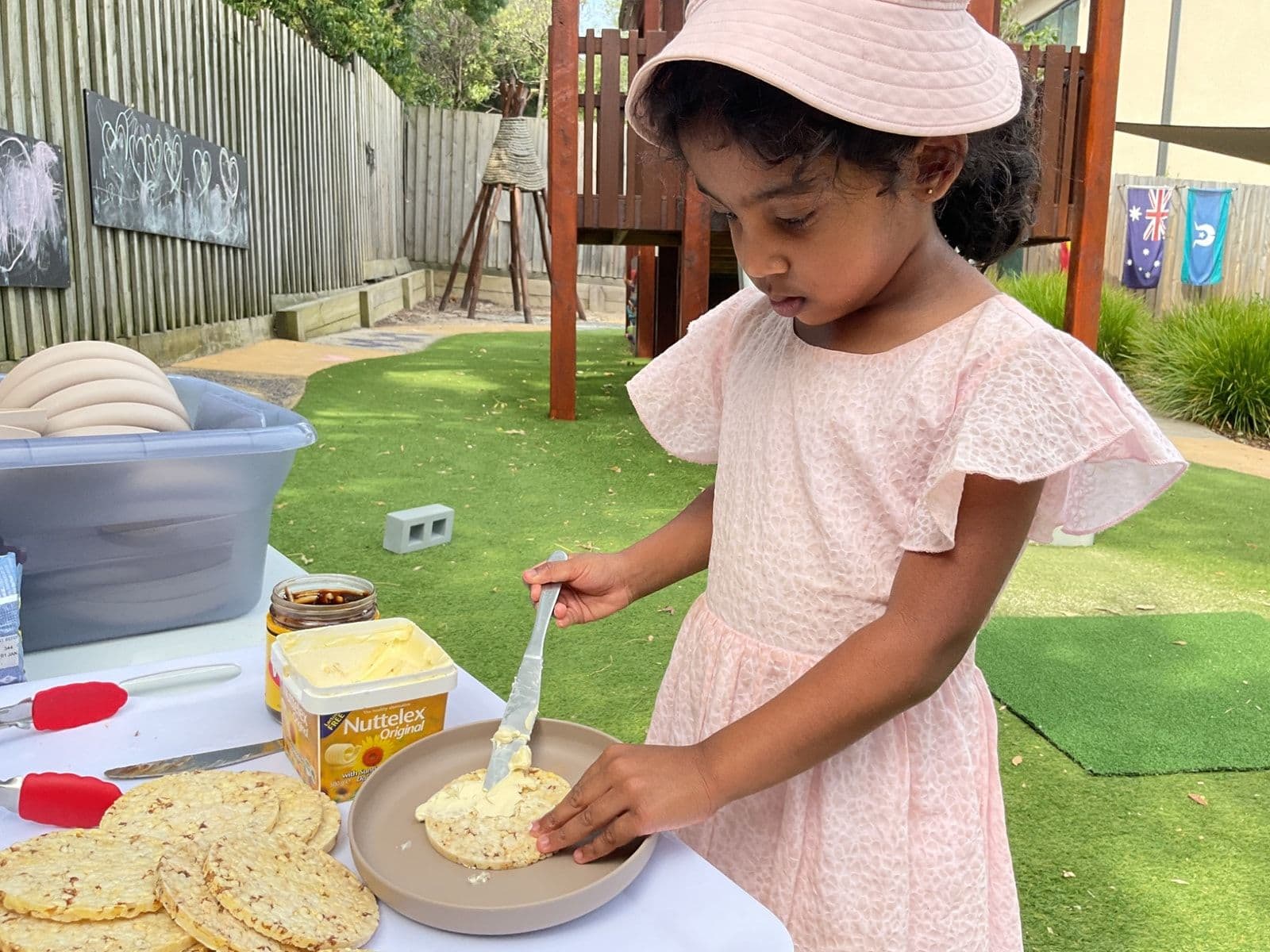As parents, introducing children to the world of structured learning is perhaps one of the most rewarding yet challenging tasks. Among the various strategies to foster a sense of security and promote effective learning, establishing routines and rituals is paramount. This blog explores why routines and rituals matter in early childhood as children begin their journey into a childcare setting. Routines play a crucial role in the lives of young children, providing them with a sense of security, stability, and predictability. From morning wakeups to bedtime rituals, a well-structured routine helps children navigate their daily lives with confidence and ease. Here’s why routines matter and how they benefit children attending a childcare program:
Routines Build a Sense of Security and Emotional Stability
Young children thrive on predictability; it helps them feel safe. Routines, such as a consistent morning drop-off, sleep times, and mealtimes, provide a structured environment that allows children to understand what to expect. This sense of stability is crucial, especially as children might feel anxious about being in a new setting without their parents. When children know what comes next, they are more likely to be calm and engaged.
Rituals in Routines Enhance your Child’s Learning and Development
Rituals are not just about structure; they are also powerful teaching tools. Incorporating learning activities into daily routines can help children grasp new concepts in a natural and enjoyable way. For example, naming colours on the clothes your child is wearing seamlessly integrates learning into their everyday experiences. This method enhances cognitive development and keeps the learning process organic and fun.
Routines Support Cognitive and Social Development
Structured routines provide numerous learning opportunities. Simple daily tasks, like getting dressed or packing a bag, help develop problem-solving skills, independence, and self-regulation. Regular interactions during scheduled activities, such as group play or Storytime, also nurture social skills, communication, and cooperation.
Routines Foster Independence and Confidence
As children navigate new experiences in childcare, routines help them develop independence. Simple tasks like washing hands before meals or putting away toys after playtime become embedded in their daily activities. This autonomy not only builds self-confidence but also helps them learn essential life skills. By taking ownership of these small rituals, children learn that they can manage their responsibilities, boosting their sense of achievement.
Routines Encourages Positive Behaviour
When children know what’s expected of them, they are more likely to develop good habits and exhibit positive behaviours. Predictable routines reduce power struggles and tantrums because children feel more in control when they understand their daily schedule. This predictability helps in setting boundaries and reinforcing positive behaviours through repetition and practice. For example, the night before choosing together the outfit they are going to wear to care the next day can save lots of struggles in the morning.
Routines Enhance Sleep Patterns and Overall Well-being
A well-rested child is more focused, happier, and better equipped to handle daily challenges. A predictable, routine time with clear rituals that the child is involved in will support their success for sleep or rest in childcare. Talk with educators about your child’s routine and partner with them to make this a consistent and enjoyable approach to sleep rituals.
Routines Promote Independence and Responsibility
A structured routine empowers children to take charge of their day. By following a schedule, they learn essential life skills such as time management, organisation, and personal responsibility. Simple tasks like brushing teeth after breakfast or putting away toys teach responsibility and boost self-confidence.
Routines Strengthen Parent-Child Bonds
Routines provide opportunities for quality bonding moments between parents and children. Whether it’s sharing a meal together, reading a bedtime story, or walking to preschool, these predictable activities foster deeper connections and meaningful interactions.
How to Create a Successful Rituals within a Routine
- Keep it simple and consistent – start with a basic schedule and gradually introduce new activities.
- Be flexible – while consistency is important, allow for some flexibility to accommodate changes and special occasions.
- Use visual cues – photos of where their toys go in their room can help young children understand and follow their routine, use songs, games to make it fun.
- Encourage participation – involve children in setting up their routines to foster a sense of ownership and cooperation.
Routines and rituals are not merely a means of organizing the day; they are critical components of early childhood care that can significantly impact a child’s growth and development. By establishing consistent patterns, parents and educators can create a nurturing environment that promotes security, learning, and social skills. In recognizing the importance of these practices, we can empower our children to navigate their early years with confidence, curiosity, and resilience. As they embark on their learning journey at Story, let us ensure that every routine and ritual enriches their experiences, guiding them toward a bright and fulfilling future. By prioritising routines, parents and educators can create a nurturing environment where children can flourish, be independent and thrive.


